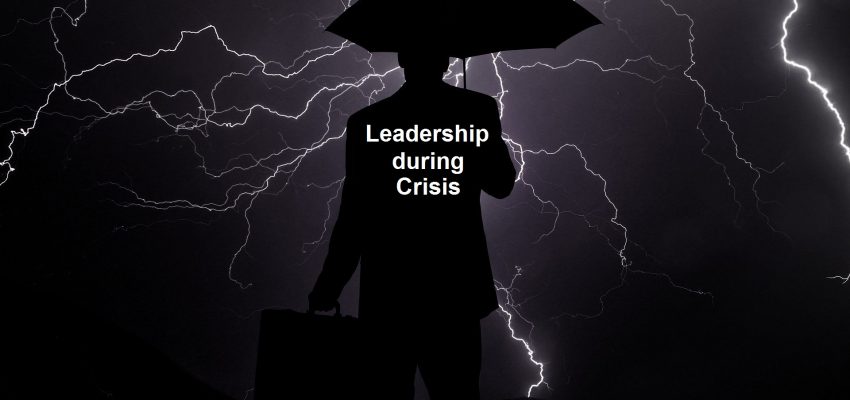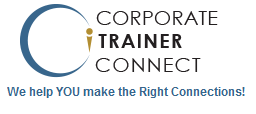
Transformational Leadership For Culture Change | Ask The Expert Series 1-9
Transformational Leadership
Train an army for a thousand days to use it for one morning – Chinese Idiom
养兵千日,用在一朝
The above Chinese idiom literally means that extensive preparation will eventually pay off. Leadership be it in steering a company through a crisis, the pilot’s skills in landing a plane safely during unexpected turbulence or a government’s capability in handling pandemic is really what the above phrase means. With all the fear, panic and negative sentiments generated from the Covid-19 pandemic, the capability of a leader becomes stark clear.
In times of crisis, what distinguishes a great leader is how he/ she responds to crisis. With great uncertainties ahead, does the leader panic, or does he/ she see the bigger picture? Will they be placing business needs before employees’ and customers’ needs? What mindset and values they carry will determine where they place importance and their corresponding action.
In this CorporateTrainerConnect.com Ask-The-Expert series, we interviewed Mr. Chris Chew, an experienced learning & organization development practitioner with more than 20 years of experience in helping individuals, teams and organizations achieve sustainable performance. As the only certified Neuro-Axiologist in Asia, his unique approach centers on helping people achieve their goals by tapping into their best ways of thinking, using a combination of neuroscience and value science. Chris was the lead adjunct lecturer in Organizational Development and Change at SUSS (Singapore University of Social Science) and is the author of the book “Conversations About Success – What Matters and How to Achieve It”.
Q1. What are your top 3 tips for a business leader to ride through the current storm created by the Covid-19 crisis?
In this current climate, everyone is likely to be more sensitive and stressed.
My first tip is around managing our mindset so that we are not triggered emotionally in a negative way,
for example when things don’t work out as we expected, deals or orders get canceled. To help with this, one of the things that can be done is to practice mindfulness. This can simply be taking a few minutes during the day to just be mindful and pay close attention to our bodily sensations when we are doing something, for example eating or drinking or taking a walk.
The 2nd tip I have for leaders is to show strength and resilience during these times.
This means to assure staff that despite the uncertain times, the company has thought things through and made plans to address disruptions or worsening of the business climate. Leaders should also encourage resilience for example, by asking and involving staff to come up with ways to stay positive, learn to stay optimistic and support each other during this period. Leaders should also lead by example on good practices in this period such as hygiene and social practices. For example, an important norm the leader can emphasize is to be socially responsible and not to show up for work if an employee is a little unwell or having mild flu symptoms (this is a problem particularly in countries like Singapore where there is this unspoken rule to not overburden other people or be seen as “not committed enough”).
My 3rd tip is to take advantage of the lull or lower business activity period when things are less busy to focus on employee or staff training/learning.
The business will eventually pick up and when they do, a better-skilled workforce will be more productive and be able to contribute towards stronger business results. For example, each department can do a simple needs analysis to identify their top development gaps, such as technical/functional, leadership or communication skills and attend workshops, webinars etc.
Q2. What should an individual who is thrown into financial and family turmoil do, due to this current climate to turn around his situation?
Each circumstance will be different but let me focus on mindset and social support.
A person who faces financial and family turmoil will likely be feeling very stressed, anxious and depressed. In such times, it is easy to engage in negative self-talk and it can lead one into further depression. The first thing one can do is to manage our mindset and learn to catch ourselves when we engage in negative self-talk and shift to adopt a growth mindset. A growth mindset helps us see that failure or difficulties are not permanent and if we put in the effort, things will improve and get better eventually. Second, tapping on social support can help one stay resilient. Share your thoughts and feelings with people you trust such as close friends or family members. Talking things through and sharing our troubles can help to help build one’s resilience during difficult periods.
Q3. What are the key steps a leader should take when undertaking an organizational culture transformation?
Here’s a brief outline of the steps that a leader should take note of:
-
Identify what is it about the current state that is not working and pull out the current underlying operating principles and values of organization and people. For example, the current principle at work could be “keep quiet and do as told” or “the boss is always right”.
-
Identify the desired future reality of the organization – what will people be doing, how will people behave towards each other and towards customers, etc. This will also involve reflecting and reviewing the organization’s current vision and purpose
-
Clarify what beliefs, mindsets, and values need to be present to create the desired future reality. These will require reflection and dialogue among leaders of the organization. Involve employees from a cross-section of the organization to also offer their views as well.
-
Articulate how the new culture would impact on business results (e.g. greater efficiency, effectiveness, customer satisfaction)
The next step is to look at organizational change levers that can drive and support the culture change – remember that the organization is a system that is made of interconnecting and interacting parts. The typical organization levers that need to be aligned are:
-
Strategy (how the culture supports or drive the strategy)
-
Structure (what organization/team structures, roles, and responsibilities would drive/support desired behaviors)
-
System (IT, HR, Financial, policies, procedures)
-
Skills (what technical and leadership skills are required)
-
Management Style (leadership mindset, values, and behaviors that support the new culture)
A change management plan would need to be put in place (e.g. building a steering team, mobilizing line leaders, staff involvement and communication sessions) to move from the current to future reality. Research and my own experience have shown that the biggest factor in the success or failure of a culture change is the leadership role modeling and alignment. Also, bear in mind that cultural transformation is usually a multi-year endeavor as beliefs, mindsets, and behaviors take time to change.
For more tips on Transformational Leadership, connect with Mr. Chris Chew at this link: https://corporatetrainerconnect.com/Trainer/chris-chew/
Click on the following links to read other what other Experts have to say in building our future skills:
-
HTTPS://CORPORATETRAINERCONNECT.COM/ARTICLE/APPLYING-DESIGN-THINKING-AND-AGILE-STRATEGIES-TO-INCREASE-REVENUE-ASK-THE-EXPERT-SERIES-1-1/
-
HTTPS://CORPORATETRAINERCONNECT.COM/ARTICLE/KEEPING-OUR-MOTIVATION-AND-PASSION-GOING-ASK-THE-EXPERT-SERIES-1-2/
-
HTTPS://CORPORATETRAINERCONNECT.COM/ARTICLE/COMPLEX-PROBLEM-SOLVING-THE-MOST-DESIRED-SKILL-FOR-2020/
-
HTTPS://CORPORATETRAINERCONNECT.COM/ARTICLE/CRITICAL-THINKING-AND-INNOVATION-ASK-THE-EXPERT-SERIES-1-4/
-
HTTPS://CORPORATETRAINERCONNECT.COM/ARTICLE/TEAM-BUILDING-BUILDING-A-HIGH-PERFORMANCE-TEAM-ASK-THE-EXPERT-SERIES-1-5/
-
https://corporatetrainerconnect.com/article/build-your-personal-brand-ask-the-expert-series-1-6/
-
https://corporatetrainerconnect.com/article/change-leadership-ask-the-expert-series-1-7/
-
https://corporatetrainerconnect.com/article/transformational-leadership-ask-the-expert-series-1-8/
CORPORATETRAINERCONNECT.COM PLATFORM
Thank you for taking the time to read this article. This article is part of the series from our newly launched CorporateConnectTrainer platform where we help connect corporations to trainers in the region. You can now search, qualify and connect directly with your best-fit trainer on one single platform, saving you time and hassle. We aim to share the subject matter expertise of our qualified trainers on the CorporateConnectTrainer platform through these articles.

Written by Janet Yung, founder of Trilogy People Performance Consultancy. We enable learning for businesses and individuals by bringing you programs, learning, and design delivery services, and technologies cum platforms, that will aid you and your team to build skills and be ready for current and future business needs.

0 Comments